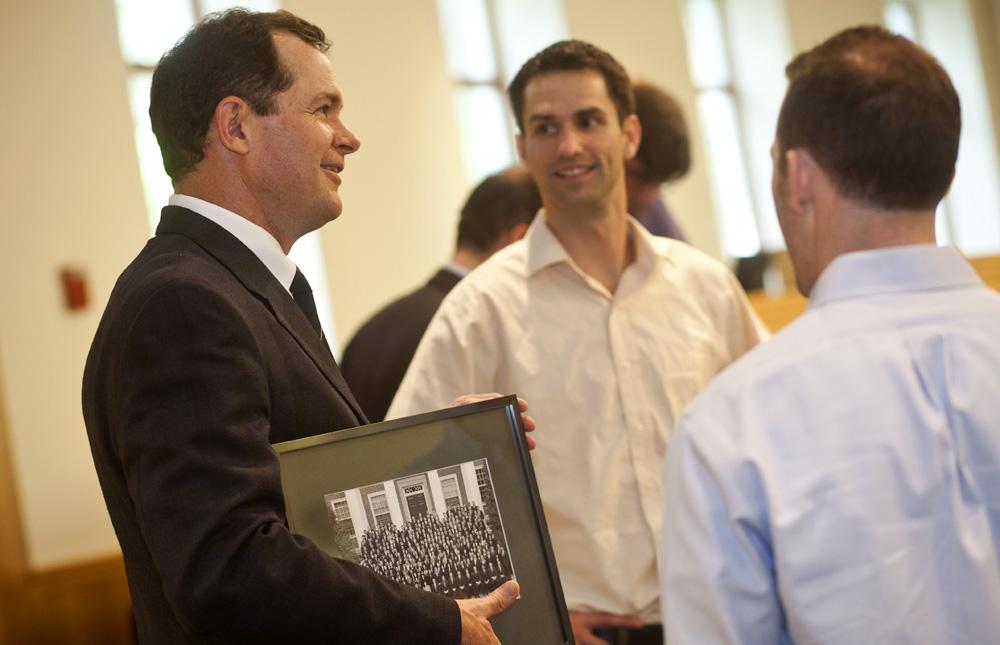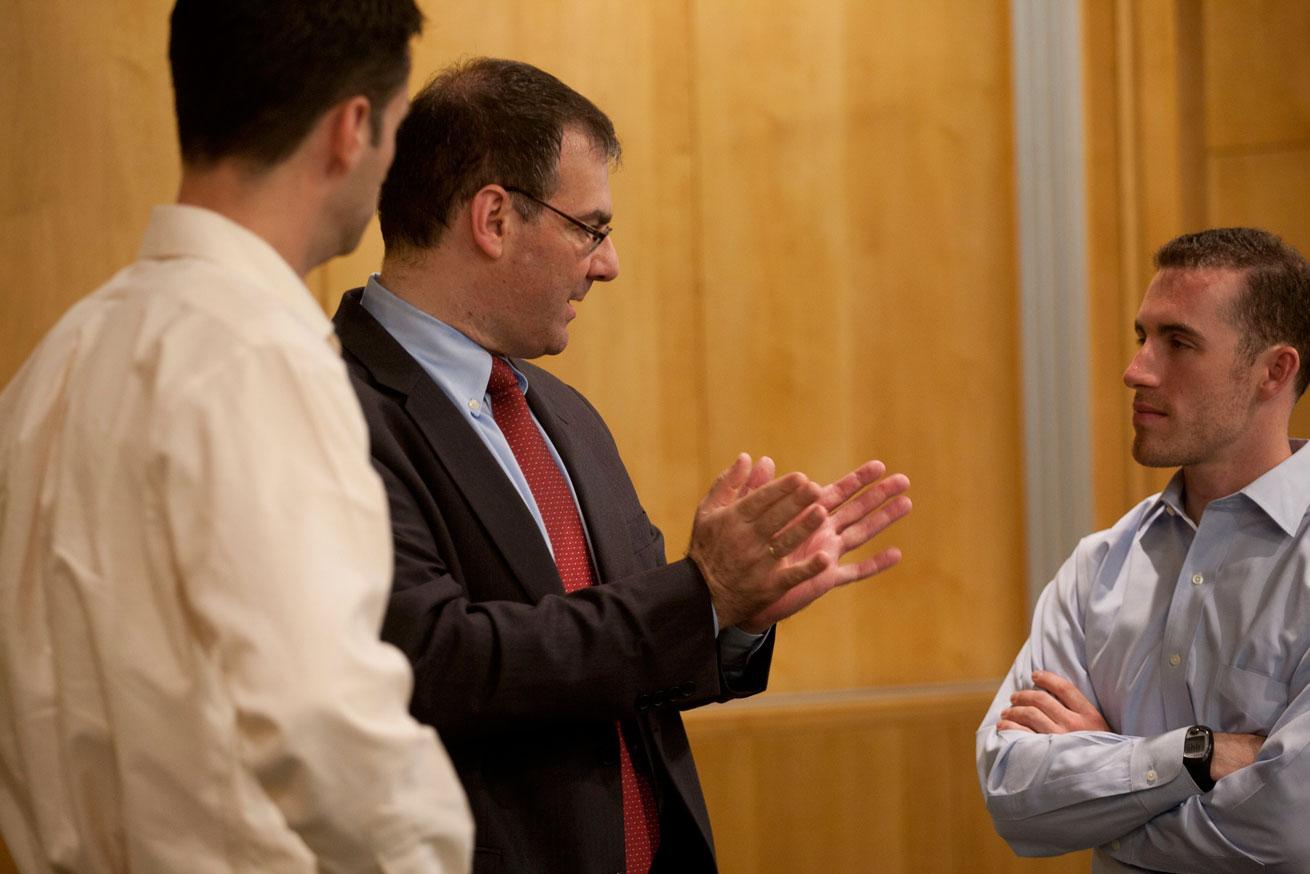Class of 2011 Celebrates Teaching Excellence
For its class gift, the class of 2011 has organized and endowed annual awards to recognize two faculty members.

Tuck has had 111 years of excellent teaching, so it is only fitting that it now has a pair of teaching awards to go with it.
For its class gift, the class of 2011 has organized and endowed annual awards to recognize two faculty members—one who teaches a core curriculum course and another who teaches an elective—who have made an outstanding contribution to the quality of the educational experience.
The first recipients of the awards, as selected by this year’s graduating class, are associate professors of business administration Phillip Stocken and Ron Adner. Stocken teaches the core accounting class; Adner teaches the Entrepreneurship, Innovation, and Strategy elective and the Research-to-Practice Seminar, Strategy in Innovation Ecosystems.
Class president Steven Hooper says the class-gift committee set a high bar when it came to determining what kind of legacy it would leave. “The charge we put out at the beginning of the process,” he explains, “is, How do we create something for the class of 2011 that will be meaningful and relevant 50 or 100 years from now?”
When the committee realized that Tuck didn’t have any teaching awards, its mission was clear: “To begin a tradition whereby graduating students could commemorate the great teaching they’ve received,” Hooper says.
The idea of creating teaching awards had come up informally over the years, says Senior Associate Dean Bob Hansen, “but there was a hesitancy because we felt there was already a strong focus on the faculty and teaching at Tuck.” The difference this time was that students were the catalysts. “The fact that they want to applaud the faculty for their teaching is a great thing,” Hansen adds, “and our students certainly have the capability to analyze good teaching if they take the time to do it right.”
The challenge, then, was to create an effective way to select the recipients. The teaching award committee steered away from a popular vote, since that would give an advantage to the faculty who taught the most students, and it wouldn’t identify those teachers making the deepest and most profound impacts. Instead, the committee worked closely with Hansen and Matthew Slaughter, the Associate Dean of the MBA Program and Signal Companies’ Professor of Management, on drafting a set of criteria that speaks to the specific goals of the core and elective courses. Generally, the criteria try to uncover the professors who challenge and engage students in a variety of ways, teaching them how to ask the right questions, articulate the right answers, and analyze problems from multiple perspectives.
The committee collected written comments from the second-year class, and, using the criteria, narrowed each category down to 10 finalists before choosing the winners. “Across the board, everyone was impressed by a number of professors,” says Hooper. “But what was amazing to me was that 19 different professors received a nomination for the core award, and 39 different professors received a nomination for the elective award.”
The process proved to Hooper that “people do recognize good teaching when they see it,” he says, “and that there’s a lot of good teaching happening here.”
To memorialize the awards, recipients will receive a framed photo of the graduating class, and a plaque listing each year’s recipients will be installed on campus.

“I can summarize the WorldCom debacle in two minutes,” he says, “but why did this massive accounting fraud occur? What were some of its antecedents? By describing those things, it becomes interesting.”

Ron Adner
Adner, who’s at work on a book about why great ideas fail, appreciates teaching electives because it provides him with a place to experiment with concepts. “It’s quite a unique opportunity to try out ideas with a group of very smart people who are willing to play the game,” he says, “and it’s gratifying to know that my work was appreciated so much.”
That’s another reason the awards are a good idea, says Hansen: Tuck students are a very discerning and critical audience, and standing in front of them is tough. “Teaching is hard work,” he says, “and this award is one way to recognize that.”